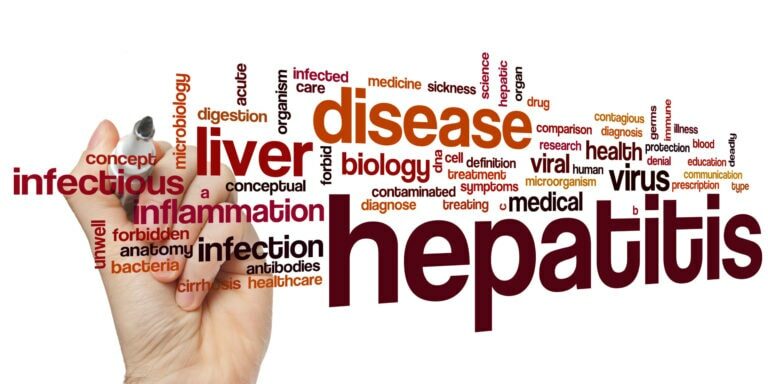
Recent news of interest from the world of infectious diseases:
- To help prepare the world for the next influenza (flu) pandemic, the Bill & Melinda Gates Foundation, together with the
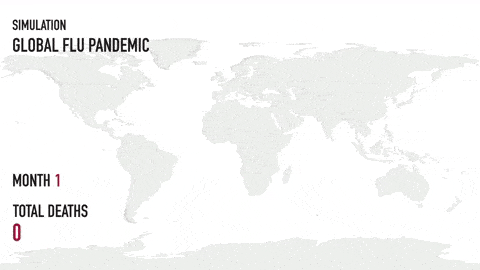 Page family, launched a $12 million grand challenge to spur research into a universal flu vaccine to protect people against future pandemics while reducing the need for annual vaccination campaigns. The challenge seeks affordable, effective vaccines that are suitable for delivery through existing immunization programs. The vaccines need to be broadly protective across Influenza A and B strains for a minimum of three to five years and technologies will need to be scalable to meet worldwide demand. Read more about the future of flu vaccines and progress towards a universal flu vaccine.
Page family, launched a $12 million grand challenge to spur research into a universal flu vaccine to protect people against future pandemics while reducing the need for annual vaccination campaigns. The challenge seeks affordable, effective vaccines that are suitable for delivery through existing immunization programs. The vaccines need to be broadly protective across Influenza A and B strains for a minimum of three to five years and technologies will need to be scalable to meet worldwide demand. Read more about the future of flu vaccines and progress towards a universal flu vaccine. - Nashville public health officials recently announced that 14 hepatitis A infections have been confirmed in the past six months, a rise from an annual average of only two. This is the latest of several outbreaks occurring across the US, including 400 cases in Kentucky since August 2017 and 76 cases in Indiana since November 2017. In both Indiana and Kentucky, officials said they have seen an increased number of cases among homeless individuals and drug-users. Indiana has also seen an increased number of cases in people who had been incarcerated. Read more about hepatitis prevention.
- Individuals traveling to Russia for the 2018 FIFA World Cup should make sure they have received two doses of the measles vaccine. Measles is a highly infectious viral illness that is typically spread by breathing or coughing. Waning levels of vaccine coverage in recent years have led to outbreaks across Europe. Russia has been heavily affected by the recent outbreak, with 800+ cases reported in 2018.
- A recent study on infection prevention programs found there is an urgent need for increased personnel to adequately staff infection control programs within healthcare facilities. The study included a comprehensive quantitative needs assessment regarding the number of infection preventionists (IPs) needed to build an effective infection prevention program and to establish a new benchmark of 1 full-time IP per 69 beds. The study also reinforced the notion that investing in infection prevention is investing in patient and healthcare worker safety.
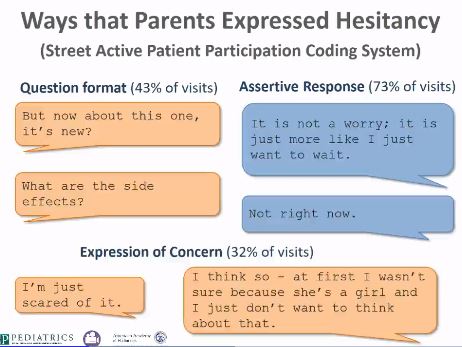 Providers engaging parents hesitant about human papillomavirus (HPV) vaccination and addressing their concerns can lead to same-day vaccinations, according to a recently published study in Pediatrics. The type of communication used with parents who are hesitant about having their teenager vaccinated against HPV can improve or hinder the chances of vaccination, with persistence toward immunization resulting in more vaccinations. The findings reveal an important missed opportunity when providers simply acquiesce to parental hesitation. For additional information about HPV, visit www.adolescentvaccination.org/hpv.
Providers engaging parents hesitant about human papillomavirus (HPV) vaccination and addressing their concerns can lead to same-day vaccinations, according to a recently published study in Pediatrics. The type of communication used with parents who are hesitant about having their teenager vaccinated against HPV can improve or hinder the chances of vaccination, with persistence toward immunization resulting in more vaccinations. The findings reveal an important missed opportunity when providers simply acquiesce to parental hesitation. For additional information about HPV, visit www.adolescentvaccination.org/hpv.
To join the conversation and get the latest news on infectious diseases, follow NFID on Twitter, like us on Facebook, follow us on Instagram, join the NFID Linkedin Group, and subscribe to NFID Updates.
Related Posts
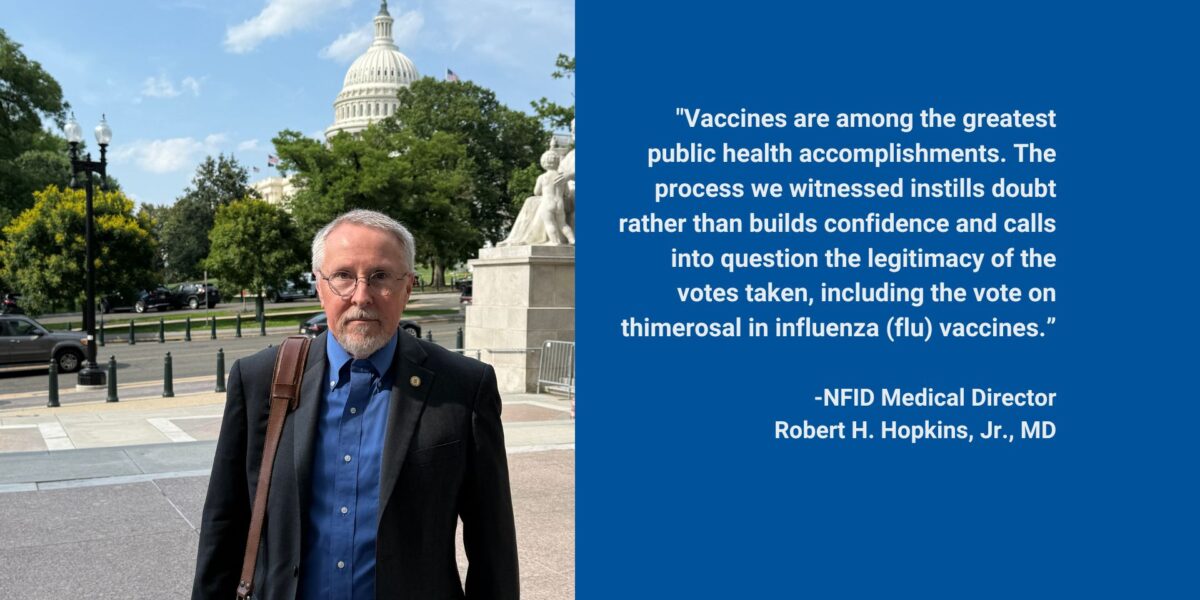
Flawed ACIP Process Leads to Confusion and Distrust
Public health experts and leading healthcare professionals share concerns regarding the June 2025 Advisory Committee on Immunization Practices (ACIP) meeting on US immunization policy …

Empowering Men to Prioritize Health
Staying up to date on all recommended vaccines and taking other steps to prevent illness helps ensure men are ready for what matters most—showing up for loved ones or simply enjoying life …
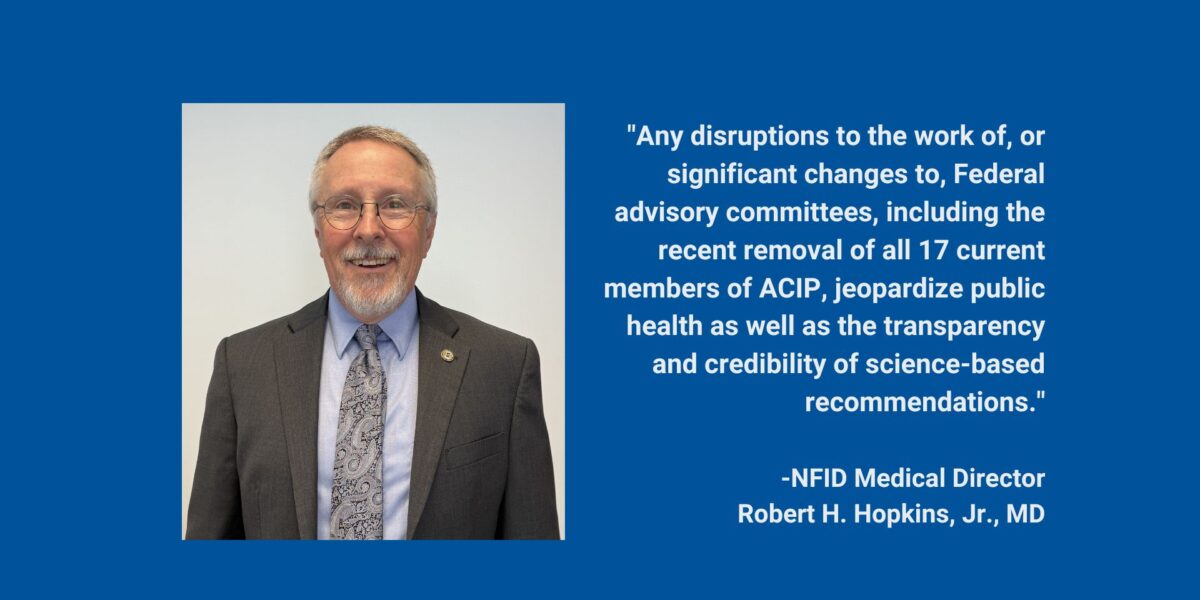
Experts Sound Alarm after ACIP Members Removed
Public health experts and leading healthcare professionals share concerns on the removal of all 17 members of the Advisory Committee on Immunization Practices (ACIP), which advises the Centers for Disease Control and Prevention (CDC) on the use of vaccines in the US
